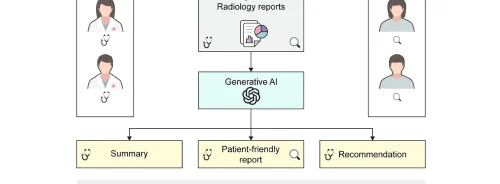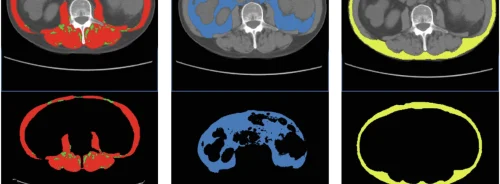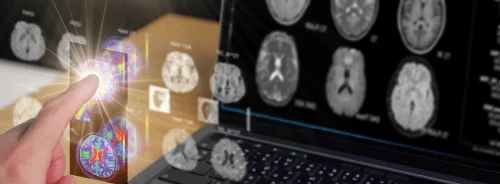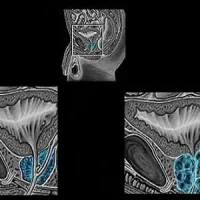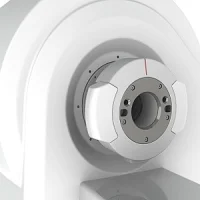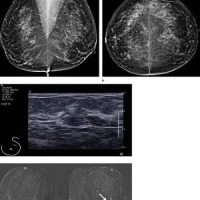New research published in The Lancet suggests that adding MRI after the mid-pregnancy scan could provide more certainty in diagnosing fetal brain abnormalities. The study involved 570 women whose mid-pregnancy ultrasound scan revealed a potential brain abnormality in the fetus. Within two weeks of their first scan they were given an extra scan using MRI, which increased accuracy of the diagnosis meaning almost all scans (93 percent) were correct.
See Also: Mapping the Fetal Brain: New Technique
"This study is the first of its kind and has shown that adding an MRI scan when a problem is detected provides additional information to support parents making decisions about their pregnancy," says lead author Professor Paul Griffiths from The University of Sheffield, UK. "Based on our findings we propose that an MRI scan should be given in any pregnancy where the fetus may have a suspected brain abnormality."
The MRI gave extra information about the brain abnormality in nearly half of cases (49 percent). For example, in one case the MRI confirmed the ultrasound diagnosis and identified an additional abnormality. This information allowed doctors to give parents a more certain outlook, halving (55 percent) the number of cases in the "unknown" prognosis group and increasing the number of pregnancies predicted to be "normal" (135 percent), "favourable" (18 percent) or "poor" (56 percent).
In the study, doctors analysing the ultrasound and MRI scans were asked to rate how confident they were of their diagnosis. The study also analysed how the MRI result changed the prognosis and advice given by physicians.
Doctors using MRI were more confident of their diagnosis – saying they had "high confidence" in 95 percent of cases (544 of 570), compared with 82 percent (465 of 570 cases) for doctors using ultrasound. In addition, doctors agreed that the extra MRI scan changed the outlook for the pregnancy in at least 20 percent of cases (157 of 783). And as a result this changed how the pregnancy was managed in one in three cases (34 percent).
Interestingly, 95 percent (257 of 270) of mothers said that they would have an MRI scan if a future pregnancy showed a brain abnormality and around 80 percent (227 of 277) said that the information from the scan helped them better understand their baby's condition.
The researchers will perform further analysis of the trial's results, including a health economics analysis, to confirm if the extra scan should be used routinely. Only cases identified by the ultrasound scan were given the extra MRI, so any cases where an ultrasound did not identify an abnormality would not have been included in this study.
"Accurate diagnosis of significant brain abnormalities has important therapeutic implications. Consequently, it is essential that tools used for prenatal diagnosis are rigorously evaluated," Professor Rod Scott, University of Vermont, USA, writes in a linked commentary. "This trial strongly supports the view that iuMRI is an excellent technique, and it should be incorporated into clinical practice as soon as possible."
Source: The Lancet
Image Credit: Wikimedia Commons
References:
Griffiths PD, Bradburn M, Campbell MJ et al. on behalf of the MERIDIAN collaborative group. Use of MRI in the diagnosis of fetal brain abnormalities in utero (MERIDIAN): a multicentre, prospective cohort study. Lancet, published online 14 December. doi: 10.1016/S0140-6736(16)31723-8
Latest Articles
MRI, Fetal Brain Abnormalities, pregnancy scan, iuMRI
New research published in The Lancet suggests that adding MRI after the mid-pregnancy scan could provide more certainty in diagnosing fetal brain abnormalities

